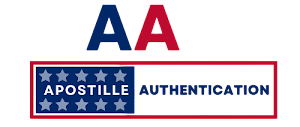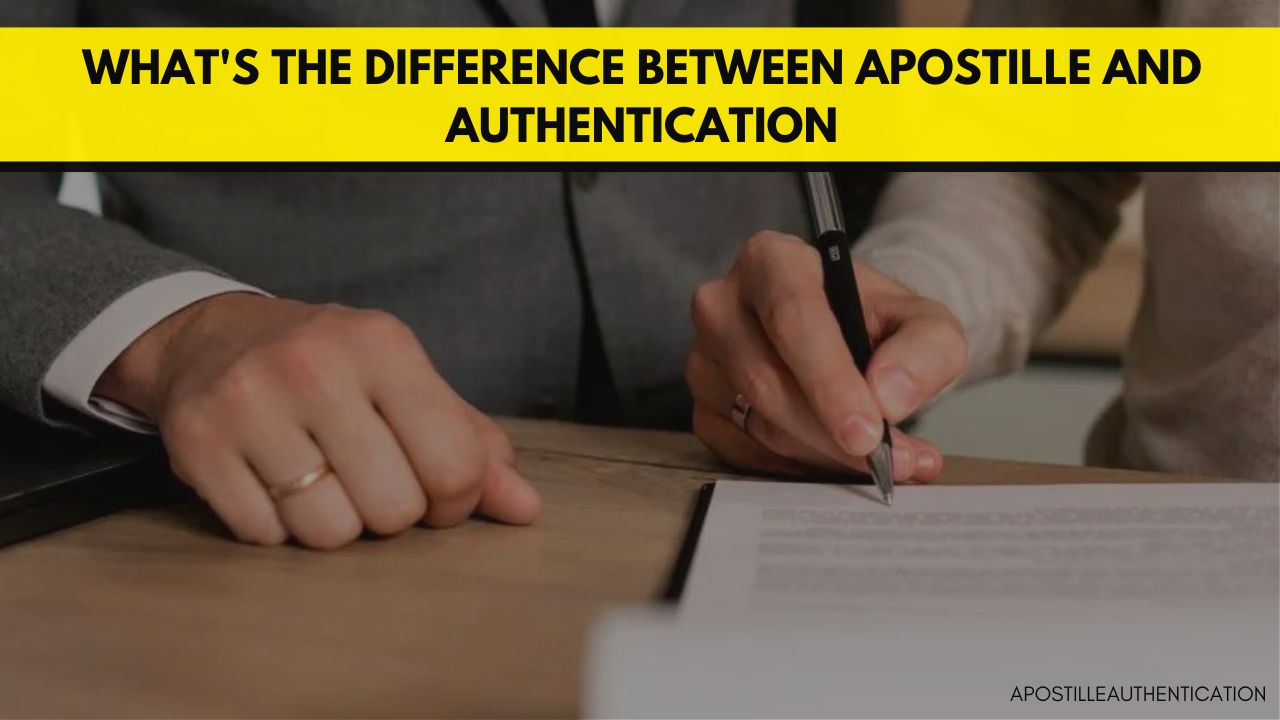If you’re planning to work, study, or do business abroad, you’ll need to have your documents verified. Two of the most common ways to do this are apostille and authentication. But what exactly are these processes, and how do they differ?
In simple terms, apostille and authentication are both types of certifications that verify the authenticity of your documents.
However, the key difference between Apostilles and Authentication two lies in the countries where they are valid.
Apostille is only valid for countries that are part of the Hague Convention, while authentication is valid for countries that are not part of the Hague Convention.
In this guide, we’ll take a closer look at everything you need to know about apostilles and authentication so you can choose the right one for your needs.
What’s the Difference Between Apostille and Authentication

If you’re planning to work, study, or do business abroad, you’ll undoubtedly need to have your documents verified. Two of the most common ways to do this are apostille and authentication. But what exactly are these processes, and how do they differ? This guide will help you understand everything you need to know about apostilles and authentication.
What is an apostille?

An apostille is a type of certification that verifies the authenticity of a public document in one country, making it legally valid in another country that is part of the Hague Convention. The Hague Convention is an international treaty that standardizes the way documents are verified across countries.
Key Points about Apostille:
- It’s only valid for countries that are part of the Hague Convention
- It verifies the authenticity of public documents.
- It makes a document legally valid in another country.
What is a document of authentication?

A document of authentication, on the other hand, is a type of certification that verifies the authenticity of a public document in one country so that it can be recognized as valid in another country that is not part of the Hague Convention.
Key Points about Authentication:
- It’s valid for countries that are not part of the Hague Convention
- It verifies the authenticity of public documents.
- It makes a document legally valid in another country.
What is gold seal certification?
Gold seal certification is a type of authentication that is recognized in some countries, particularly in Canada. It verifies the authenticity of a document and is usually affixed with a gold seal.
Are Apostille & Authentication the Same?

No, apostille and authentication are not the same. The key difference between the two is that the apostille is only valid for countries that are part of the Hague Convention. At the same time, authentication is valid for countries that are not part of the Hague Convention.
How to get documents apostilled or authenticated
To get your documents apostilled or authenticated, you’ll need to follow these steps:
- Determine if you need an apostille or authentication.
- Get your documents notarized.
- Submit your documents to the appropriate government agency for apostille or authentication.
- Wait for your documents to be processed and returned to you.
What’s a Notary’s Role?
A notary is a public official who verifies the authenticity of signatures and documents and is typically involved in the process of getting documents apostilled or authenticated.
When to Choose Apostille or Authentication?
The choice between apostille or authentication will depend on the country where you plan to use your documents. If the country is a member of the Hague Convention, you’ll need an apostille. If not, you’ll need authentication.
Conclusion
In summary, apostille and authentication are two different processes that verify the authenticity of public documents. Apostille is only valid for countries that are part of the Hague Convention, while authentication is valid for countries that are not part of the Hague Convention. The choice between the two will depend on the country where you plan to use your documents.
FAQ’s
What is the difference between notarization, a true copy, legalization, and an attestation/apostille?
Notarization is the process of having a public official verify the authenticity of a signature. A true copy is a copy of a document that has been verified as authentic. Legalization is the process of verifying the authenticity of a document so that it can be used in a foreign country. Attestation is similar to apostille but is used in countries that are not part of the Hague Convention.
How do I obtain an apostille or certificate of authentication?
To obtain an apostille or certificate of authentication, you’ll need to get your documents notarized and submit them to the appropriate government agency for processing.
How can I authenticate or legalize documents in Nigeria with an apostille stamp?
Nigeria is not a member of the Hague Convention, so you’ll need to get your documents authenticated or legalized rather than apostilled. You can do this by submitting your documents to the appropriate government agency for processing.
What is the difference between a notary and an apostille?
A notary is a public official who verifies the authenticity of signatures and documents, while an apostille is a type of certification that verifies the authenticity of public documents.
What is an apostille?
An apostille is a type of certification that verifies the authenticity of a public document in one country, making it legally valid in another country that is part of the Hague Convention.
Is apostille the same as authentication?
No, apostille and authentication are not the same. The key difference between the two is that the apostille is only valid for countries that are part of the Hague Convention. At the same time, authentication is valid for countries that are not part of the Hague Convention.
Can I use an apostille document for any country?
No, you can only use an apostille document in countries that are part of the Hague Convention.

